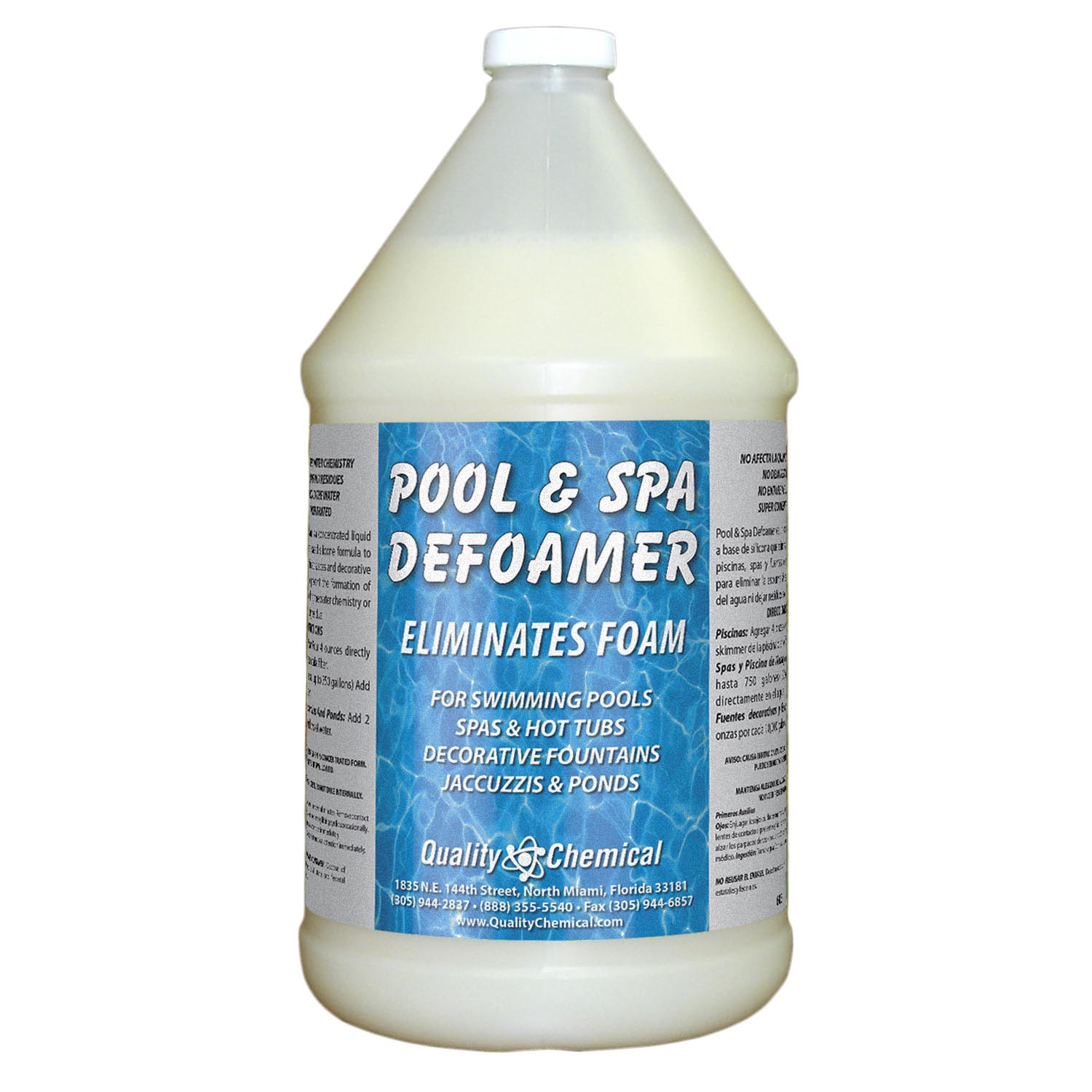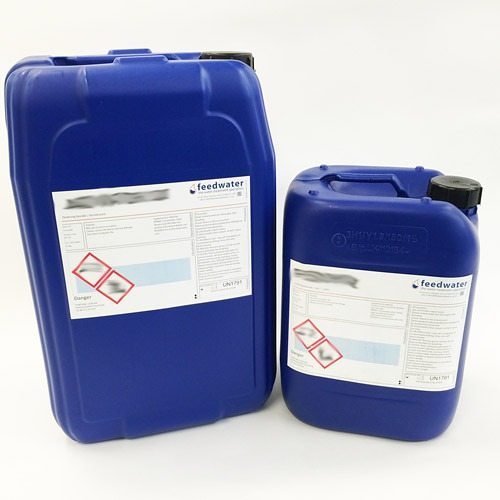How Industries Benefit from Using a High-Quality Chemical Defoamer
How Industries Benefit from Using a High-Quality Chemical Defoamer
Blog Article
Exactly How a Chemical Defoamer Can Boost Performance in Your Operations and Procedures
In today's affordable industrial landscape, operational performance is critical, and the role of a chemical defoamer can not be ignored. By addressing foam-related challenges that interfere with processes, defoamers not just assist in smoother operations but additionally add to set you back savings and enhanced product high quality. Their influence covers various industries, making them a crucial consideration for those seeking to optimize performance. Nonetheless, recognizing the certain benefits and applications of defoamers increases crucial concerns concerning their selection and implementation. What factors should you take into consideration to optimize their performance in your operations?
Comprehending Chemical Defoamers
Chemical defoamers play a vital duty in different commercial processes by properly minimizing and stopping foam formation. Foaming can result in functional inadequacies, increased manufacturing expenses, and endangered item high quality. Defoamers are specialized chemical additives designed to disrupt the security of foam bubbles, therefore enabling smoother handling and enhanced efficiency throughout several markets, consisting of food and beverage, drugs, and wastewater treatment.

These agents generally include surfactants, oils, or polymeric compounds that lower the surface stress of the fluid, facilitating the collapse of foam. The device by which defoamers run frequently entails the destabilization of foam frameworks, allowing for quicker water drainage of fluid and the release of caught air. Different solutions are tailored to certain applications, taking into account factors such as compatibility with the system, temperature, and the nature of the liquid being treated.
Comprehending the composition and performance of chemical defoamers is necessary for picking the ideal product for a provided application. By optimizing defoamer choice based on process demands, markets can boost operational performance, reduce foam-related difficulties, and eventually boost total performance.
Benefits of Making Use Of Defoamers
Utilizing defoamers can significantly enhance functional effectiveness throughout various industries by effectively minimizing foam-related concerns. The existence of foam can interrupt procedures, resulting in boosted downtime, reduced productivity, and potential high quality degradation in output. Defoamers help deal with these difficulties by breaking down foam structures, thereby permitting smoother procedures.
One of the main benefits of using defoamers is the reduction of waste and rework. By minimizing foam development, defoamers improve the consistency of procedures, making certain that products are made use of efficiently. This not just lowers operational costs but likewise adds to sustainability campaigns by decreasing resource usage.
Furthermore, defoamers can boost product top quality. In producing setups, excessive foam can bring about variances in item qualities, affecting client satisfaction. By regulating foam levels, defoamers assist maintain the wanted physical residential or commercial properties of products.

Applications in Numerous Industries
The performance of defoamers extends throughout a wide variety of markets, where their application addresses details foam-related difficulties integral to every industry. In the food and beverage market, defoamers are crucial for maximizing manufacturing procedures, such as brewing and dairy products processing, where extreme foam can impede circulation prices and decrease performance. By lessening foam, these representatives improve product quality and uniformity.
In the chemical manufacturing industry, defoamers are utilized in processes like paint manufacturing and wastewater treatment. Here, they protect against foam development that can disrupt blending and separate phases, therefore improving the total effectiveness and performance of procedures.
In drugs, defoamers play a vital function in the formula of fluid drugs, guaranteeing proper dose and security by regulating foam during mixing and storage space. (Chemical Defoamer)
Furthermore, in the farming field, defoamers are made use of in pesticide formulas to enhance application efficiency and lessen waste.
Selecting the Right Defoamer
Choosing the proper defoamer is vital for attaining ideal performance in numerous applications. The choice procedure need to begin with a complete understanding of the details issues handy, including the kind of foam existing, the processing problems, and the chemical compatibility with other formulation components.
Defoamers are go right here developed from a selection of materials, including silicone, mineral oils, and fats. Recognizing the appropriate composition is vital, as different materials display varying effectiveness in diverse atmospheres. As an example, silicone-based defoamers are commonly preferred in high-temperature applications due to their stability, while natural defoamers might be much more suitable for water-based systems.
In addition, think about the defoamer's influence on the end product. Some formulas can alter the visual or practical properties, making it imperative to select a defoamer that meets product requirements without jeopardizing quality.
Checking is one more vital action in selecting a defoamer. Small tests can offer valuable insights into the defoamer's efficiency, permitting changes prior to full-blown execution. By thoroughly examining these aspects, businesses can improve efficiency and ensure that the defoamer efficiently satisfies their operational needs.
Best Practices for Application
Implementing a defoamer effectively needs mindful preparation and adherence to finest practices to optimize its efficiency. Carry out a thorough assessment of the particular application and foam qualities. Recognizing the kind and resource of foam will lead the choice of the most suitable defoamer solution.
Next, develop the ideal dosage (Chemical Defoamer). Start with a small Your Domain Name test to figure out the minimum reliable concentration, as extreme use can result in adverse effects on item top quality or operational effectiveness
Tracking and readjusting the application technique is essential; guarantee that the defoamer is presented at the ideal point while doing so for optimal influence, such as during blending or immediately after foam development.

In addition, preserve clear interaction with all appropriate workers to make certain constant application practices and to share understandings on efficiency end results.
Conclusion
To conclude, the usage of chemical defoamers plays a crucial role in boosting operational efficiency throughout varied markets. By effectively destabilizing foam, these representatives facilitate quicker drainage and air launch, consequently minimizing disturbances and decreasing prices. The strategic application of defoamers not just improves throughput yet likewise makes certain regular item quality and resource optimization. Eventually, the unification of defoamers right into commercial processes promotes dependability and adds to total efficiency improvement.

In the food and beverage sector, defoamers are critical for enhancing production processes, such as developing and dairy products processing, where excessive foam can prevent circulation rates and minimize efficiency. Silicone-based defoamers are frequently favored in high-temperature applications due to their security, while natural defoamers might be a lot more suitable for water-based systems.
Report this page